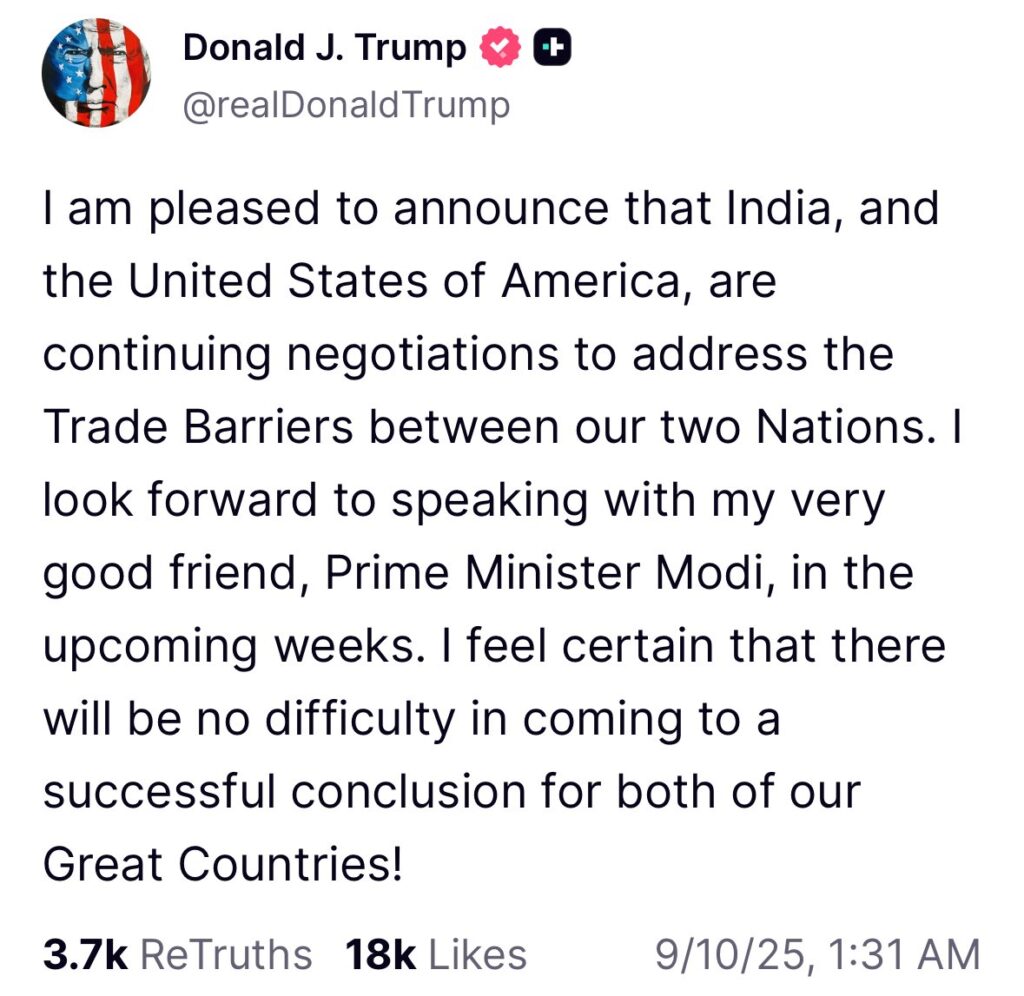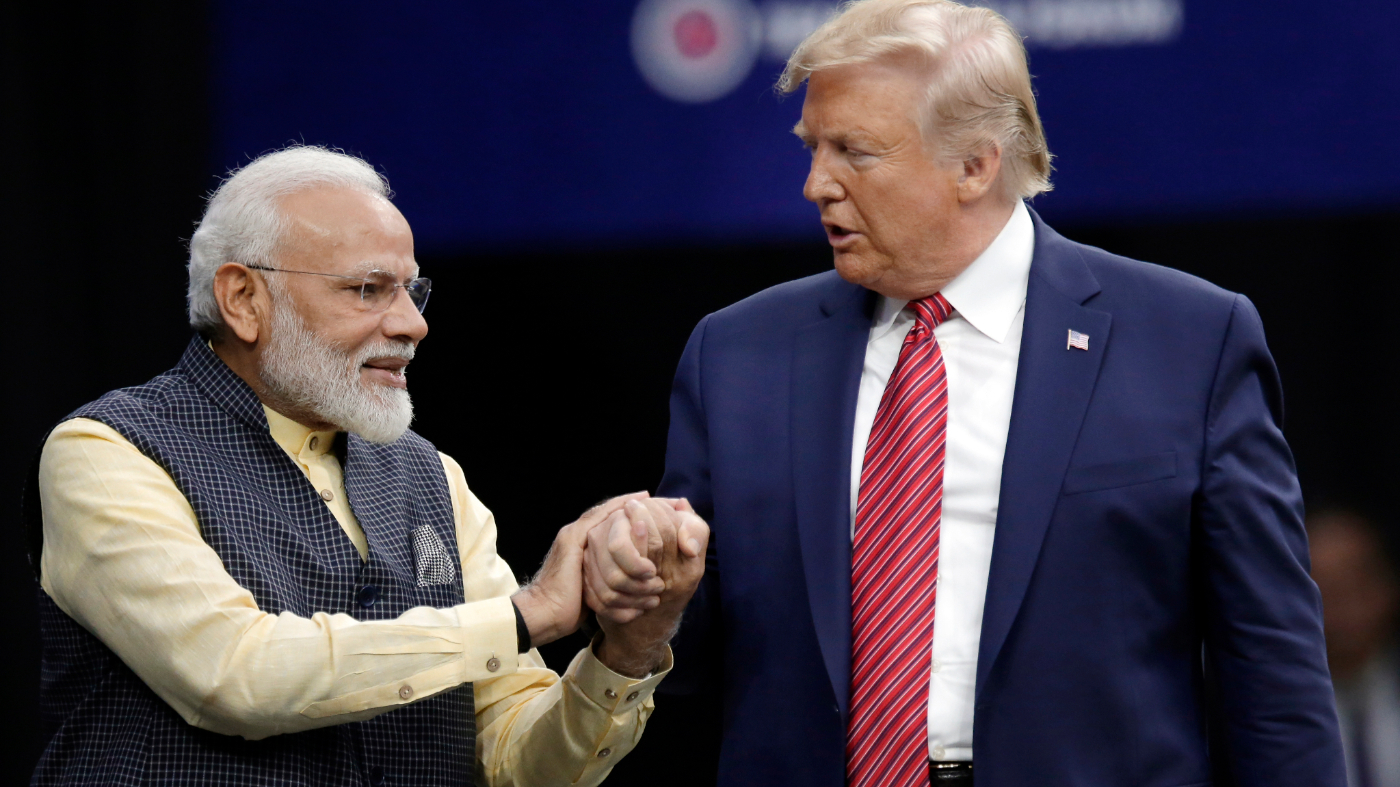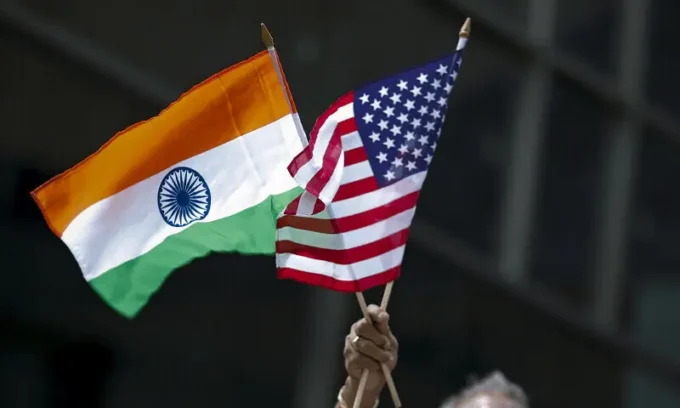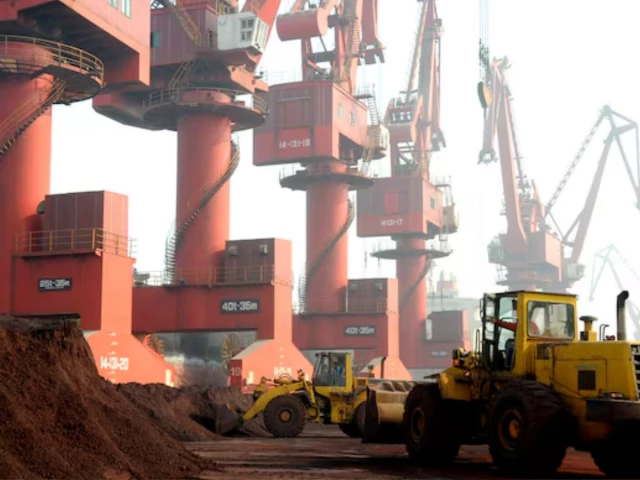NEW DELHI: U.S. President Donald Trump has softened his once-aggressive stance on India, signaling a recalibration of Washington’s economic strategy toward New Delhi. After years of issuing threats and warnings over trade imbalances, Trump now appears to acknowledge India’s growing leverage in global markets, extending what he described as an “olive branch” to Prime Minister Narendra Modi.
Calling Modi his “very good friend,” Trump expressed optimism about upcoming discussions and insisted that there would be “no difficulty” in achieving a mutually beneficial conclusion. The shift highlights how India’s resilient economy and expanding global influence have compelled Washington to approach trade talks on more conciliatory terms.
Analysts note that India has increasingly asserted itself as a crucial partner in global supply chains, particularly in technology, energy, and manufacturing, areas where the U.S. has sought to diversify away from dependence on China. Trump’s softened rhetoric suggests that Washington recognizes the limits of pressure tactics, which have so far failed to alter India’s independent economic policies.

New Delhi, meanwhile, has successfully positioned itself as a strategic hub for foreign investment and trade diversification. Its strong GDP growth, expanding digital economy, and infrastructure modernization drive have boosted investor confidence, strengthening its hand in negotiations with major powers.
For Washington, realigning ties with India is not only about trade but also about securing long-term access to one of the world’s fastest-growing consumer markets. Trump’s climbdown is being seen as an admission that previous hardline strategies risked alienating a key partner at a time when the U.S. seeks to strengthen alliances in the Indo-Pacific.
Economic experts suggest that the renewed engagement could pave the way for agreements in areas such as tariff reductions, market access for U.S. firms, and cooperation in critical technologies. However, they caution that India is unlikely to compromise on its core economic policies, particularly those protecting domestic industries and agriculture.
With Trump’s latest overture, the stage appears set for a new phase in U.S.-India trade relations, one where Washington is increasingly negotiating on New Delhi’s terms rather than dictating the agenda.















Leave a comment